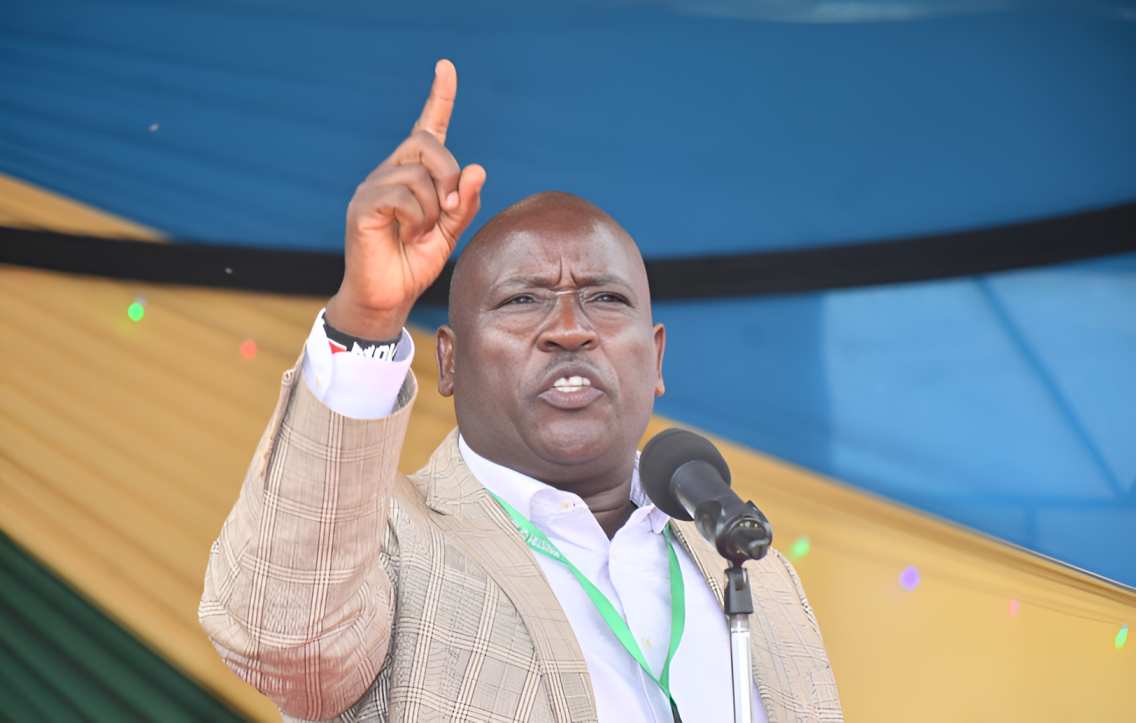MP Makali Mulu urges budget scrutiny, warns on taxation

He cautioned that imposing taxes without clear accountability and efficient use of public funds could harm Kenyans and stall economic growth.
Kitui Central MP Makali Mulu has urged lawmakers and fiscal planners to take a closer look at the 2025/26 budget before approving new tax measures in the Finance Bill.
He cautioned that imposing taxes without clear accountability and efficient use of public funds could harm Kenyans and stall economic growth.
In a recent media interview, Mulu stressed the importance of reviewing the budget through the lens of ordinary citizens, the business community, and national priorities, insisting that any taxation should be aligned with the country’s socio-economic realities.
Makali Mulu emphasized the need for a well-rounded approach when analyzing the budget and Finance Bill, urging stakeholders to assess them through three lenses: their impact on ordinary citizens, implications for the private sector, and alignment with the government’s political agenda.
He warned that failing to strike a balance between these interests could carry political costs.
Citing the ongoing challenges in the education sector such as inadequate university capitation and lecturer strikes Mulu noted that continued neglect could erode public confidence in the Kenya Kwanza administration.
“If a budget isn’t backed by a solid Finance Bill, development stalls. Roads, healthcare, education—everything suffers. And if that persists for five years, this government risks losing public support,” he cautioned.
Mulu underscored the importance of ensuring that revenue collection efforts do not push struggling citizens further into hardship.
While acknowledging the government’s need for funds to implement its agenda, he cautioned against excessive taxation that could stifle economic activity.
“If the average Kenyan is broke, they can’t spend. And if there’s no spending, producers can’t sell. That’s how you stall an economy. It’s a delicate balance,” he remarked.
The MP criticized what he described as a growing tendency among analysts and policymakers to focus extensively on the Finance Bill which outlines how the government raises revenue while paying little attention to how these funds are allocated and spent in the national budget.
“Many spend three to four weeks scrutinizing the Finance Bill but rarely invest time examining the budget proposals. The Finance Bill funds those proposals, so ignoring them makes funding decisions meaningless,” Mulu explained.
He highlighted examples of inefficient public spending, referencing an Auditor General report that revealed Kenya paid Ksh6.7 billion in commitment fees over three years on development loans that were never accessed.
“That money was loaned to Kenya but not drawn down. If these loans were properly utilized, the Ksh6.7 billion could be cut from the Finance Bill without impacting the budget,” he added.
He also highlighted a government fund burdened by Ksh5 billion in unpaid loans due to weak recovery systems, questioning the rationale behind allocating an extra Ksh60 billion to it this financial year.
“The key question is: if funds haven’t been repaid because there’s no effective collection mechanism, should we continue to allocate more money?
This year, the fund is asking for an additional Ksh60 billion. If we decide to withhold further resources until existing funds are properly managed, that Ksh60 billion could be cut from the Finance Bill,” he argued.
Mulu urged budget analysts to thoroughly examine all government spending, including allocations to the presidency, suggesting significant savings could be made with careful review.
“I wish these analysts would dedicate more time to scrutinizing our budget. Take the presidency, for example how much funding is allocated there? Do we really need that much? If not, someone could identify unnecessary expenses and cut costs.
We could easily save a billion shillings there. In fact, the Ksh24 billion allocated could be trimmed significantly through better spending discipline,” he concluded.
